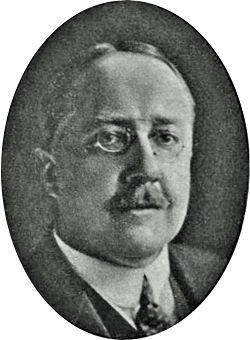E.W. Hornung Death
Ernest passed away on March 22, 1921 at the age of 54 in Saint-Jean-de-Luz, Pyrénées-Atlantiques, France.
When did E.W. Hornung die?
March 22, 1921How old was E.W. Hornung when died?
54Where did E.W. Hornung die? What was the location of death?
Saint-Jean-de-Luz, Pyrénées-Atlantiques, France
E.W. Hornung Birthday and Date of Death
E.W. Hornung was born on June 7, 1866 and died on March 22, 1921. Ernest was 54 years old at the time of death.
Birthday: June 7, 1866
Date of Death: March 22, 1921
Age at Death: 54
Is E.W. Hornung's father, John Peter Hornung, dead or alive?
John Peter Hornung's information is not available now.
Is E.W. Hornung's mother, Harriet Armstrong Hornung, dead or alive?
Harriet Armstrong Hornung's information is not available now.
E.W. Hornung - Biography
Ernest William Hornung was an English author and poet known for writing the A. J. Raffles series of stories about a gentleman thief in late 19th-century London. Hornung was educated at Uppingham School; as a result of poor health he left the school in December 1883 to travel to Sydney, where he stayed for two years. He drew on his Australian experiences as a background when he began writing, initially short stories and later novels.In 1898 he wrote "In the Chains of Crime", which introduced Raffles and his sidekick, Bunny Manders; the characters were based partly on his friends Oscar Wilde and his lover, Lord Alfred Douglas, and also on Sherlock Holmes and Dr. Watson. The series of Raffles short stories were collected for sale in book form in 1899, and two further books of Raffles short stories followed, as well as a poorly received novel. Aside from his Raffles stories, Hornung was a prodigious writer of fiction, publishing numerous books from 1890, with A Bride from the Bush to his 1914 novel The Crime Doctor.The First World War brought an end to Hornung's fictional output. His son, Oscar, was killed at the Second Battle of Ypres in July 1915. Hornung joined the YMCA, initially in England, then in France, where he helped run a canteen and library. He published two collections of poetry during the war, and then, afterwards, one further volume of verse and an account of his time spent in France, Notes of a Camp-Follower on the Western Front. Hornung's fragile constitution was further weakened by the stress of his war work. To aid his recuperation, he and his wife visited the south of France in 1921. He fell ill from influenza on the journey, and died on 22 March 1921, aged 54.Although much of Hornung's work has fallen into obscurity, his Raffles stories continued to be popular, and have formed numerous film and television adaptations. Hornung's stories dealt with a wider range of themes than crime: he examined scientific and medical developments, guilt, class and the unequal role played by women in society. Two threads that run through a sizeable proportion of his books are Australia and cricket; the latter was also a lifelong passion.Hornung was born Ernest William Hornung on 7 June 1866 at Cleveland Villas, Marton, Middlesbrough; he was nicknamed Willie from an early age. He was the third son, and youngest of eight children, of John Peter Hornung and his wife Harriet née Armstrong (1824-96). John was christened Johan Petrus Hornung in the Transylvania region of Hungary and, after working in Hamburg for a shipping firm, had moved to Britain in the 1840s as a coal and iron merchant. John married Harriet in March 1848, by which time he had anglicised his name. At the age of 13 Hornung joined St Ninian's school in Dumfriesshire before enrolling at Uppingham School in 1880. Hornung was well liked at school, and developed a lifelong love of cricket despite limited skills at the game, which were further worsened by bad eyesight, asthma and, according to his biographer Peter Rowland, a permanent state of generally poor health.When Hornung was 17 his health worsened; he left Uppingham and travelled to Australia, where it was hoped by his family that the climate would be beneficial. On his arrival he was employed as a tutor to the Parsons family in Mossgiel in the Riverina, south-western New South Wales. In addition to teaching, he spent time working in remote sheep stations in the outback and contributing material to the weekly magazine The Bulletin; he also began writing what was to become his first novel. Although he spent only two years in Australia, the experience was "the making of him and ... the making of his career as a writer", according to Rowland. Another biographer, Mark Valentine, wrote that Hornung "seems to have regarded this period as one of the most satisfying of his life".








